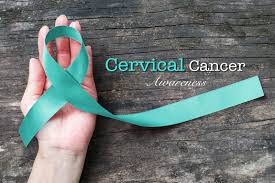
Medical experts have identified several risk factors for cervical cancer, including Human Papilloma Virus (HPV) infection, early sexual activity, multiple sexual partners, smoking, and immune system deficiency.
These insights were shared during a Zoom meeting on Tuesday organized by the AIDS Healthcare Foundation Nigeria in collaboration with the Johns Hopkins Programme for International Education in Gynecology and Obstetrics, the National Agency for the Control of AIDS, the Institute of Human Virology Nigeria, and GirlsAct.
The discussion, themed “Understanding Cervical Cancer and Its Intersection with HIV,” emphasized the importance of regular cervical cancer screening for early detection and successful treatment.Cervical cancer develops in the cervix, the entrance to the uterus from the vagina.
According to the World Health Organization (WHO), nearly all cervical cancer cases (99 percent) are linked to high-risk HPV, a common sexually transmitted virus.
“While most HPV infections resolve on their own without causing symptoms, persistent infections can lead to cervical cancer in women,” the WHO noted.
Cervical cancer ranks as the fourth most common cancer in women globally and is the third most common cancer in Nigeria.
It is also the second leading cause of cancer deaths among Nigerian women aged 15 to 44 years. In 2020, Nigeria recorded 12,000 new cases and 8,000 deaths due to cervical cancer.
Dr. George Ikaraoha, the Pre-Exposure Prophylaxis and Cervical Cancer Prevention Programme Advisor with JHPIEGO, highlighted the key factors contributing to cervical cancer: HPV infection, early sexual activity, multiple sexual partners, smoking, and immune system deficiency.
He also noted additional factors such as long-term use of oral contraceptives, having many children, socio-economic barriers like limited access to healthcare, poverty, lack of education, misinformation, and cultural stigmas.
“Regular screening is crucial as it allows for the detection and treatment of precancerous conditions before they develop into cervical cancer,” Dr. Ikaraoha advised.
“Understanding the risk factors and adhering to recommended screening schedules can significantly reduce the risk of developing cervical cancer and improve treatment outcomes.”
Omoseke Bamijoko, an Antiretroviral Therapy Nurse at AHF, emphasized the importance of early diagnosis, noting that cervical cancer can be treated successfully if discovered early.
“Women living with HIV are more prone to cervical cancer and should be screened every three years, while others can be screened every five years,” she said.
She urged women to seek medical attention for symptoms such as unusual bleeding, foul-smelling vaginal discharge, persistent pain, weight loss, fatigue, and swelling in the legs.
Senior nursing officer Mrs. Menakaya Atenchong and Dr. Lois Maji, a Programme Officer with IHVN, stressed the importance of screening and vaccination for young girls.
They noted that early detection could significantly reduce the burden of cervical cancer in Nigeria and prevent genital warts and other growths.
Steve Aborisade, the AHF Nigeria Advocacy and Marketing Manager, highlighted that cervical cancer and HIV are major public health concerns, especially in resource-limited settings.
He stated that the meeting aimed to provide participants with information on the relationship between HIV and cervical cancer, discuss preventive measures, and share the latest research and strategies for effective management and support.
Subscribe to National Updates for more News.
